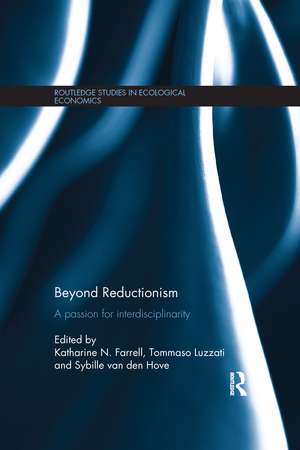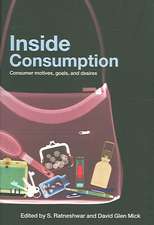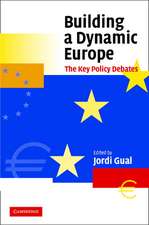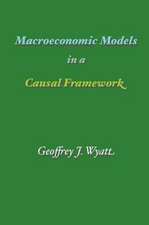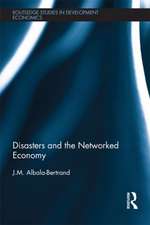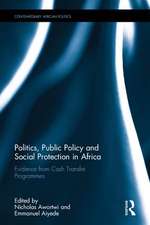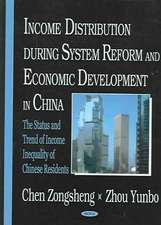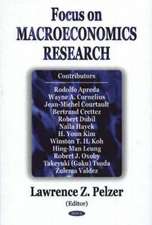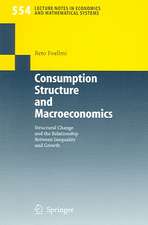Beyond Reductionism: A Passion for Interdisciplinarity: Routledge Studies in Ecological Economics
Editat de Katharine Farrell, Tommaso Luzzati, Sybille van den Hoveen Limba Engleză Paperback – 31 mar 2017
The tragedy of the Anthropocene, of the large scale anthropogenic habitat destruction and planet-wide impacts of anthropogenic climate change, is not that science has failed humanity but rather that it has served humanity all too well, making possible in just a few hundred years volumes and scales of human activity far exceeding anything ever seen before. Coming to terms with that success was the aim of the 1969 Alpbach Symposium, from which this book draws its name, where contributors including Friedrich Hayek and Ludwig von Bertalanffy, asked themselves: what theory, practices and standards are required to move beyond reductionism? Like those from 1969, the answers presented in this collection are hugely diverse, ranging from PhD students concerned with research methods and institutional obstacles, to mid-career scholars presenting their innovative ‘beyond-reductionism’ research methods, to emeritus professors looking back over what has been achieved in the past 30 years and suggesting where things might go from here.
All the contributors begin from the premise that the challenges of the Anthropocene can only be successfully met if interdisciplinary research effectively brings together social and natural sciences, the humanities, stakeholders and decision makers. They conclude, in unison, that both the institutional and the methodological foundations needed to do this work are still sorely lacking. While this may seem a dismal position, the book is full of success stories, such as: the integrative approach of MuSIASEM (Multi-Scale Integrative Assessment of Social-Ecological Metabolism) developed by Mario Giampietro’s group in Barcelona, Spain; the alternative perspectives of what Ariel Salleh calls the ‘meta-industrial’ discourse in Ecofeminism; or the innovative trans-departmental status of the Stockholm Resilience Centre in Sweden. Putting both the theoretical and methodological challenges of moving beyond reductionism on the table for discussion, this text aims to help a growing community of passionate thinkers and actors better understand themselves and their work.
Din seria Routledge Studies in Ecological Economics
-
 Preț: 311.41 lei
Preț: 311.41 lei -
 Preț: 151.86 lei
Preț: 151.86 lei -
 Preț: 310.31 lei
Preț: 310.31 lei - 26%
 Preț: 819.09 lei
Preț: 819.09 lei - 25%
 Preț: 851.99 lei
Preț: 851.99 lei -
 Preț: 412.70 lei
Preț: 412.70 lei -
 Preț: 487.75 lei
Preț: 487.75 lei - 18%
 Preț: 1167.58 lei
Preț: 1167.58 lei -
 Preț: 397.54 lei
Preț: 397.54 lei -
 Preț: 482.53 lei
Preț: 482.53 lei -
 Preț: 483.55 lei
Preț: 483.55 lei - 26%
 Preț: 987.21 lei
Preț: 987.21 lei -
 Preț: 417.20 lei
Preț: 417.20 lei -
 Preț: 418.35 lei
Preț: 418.35 lei - 14%
 Preț: 341.66 lei
Preț: 341.66 lei - 11%
 Preț: 336.99 lei
Preț: 336.99 lei - 15%
 Preț: 423.09 lei
Preț: 423.09 lei - 18%
 Preț: 1167.36 lei
Preț: 1167.36 lei -
 Preț: 482.35 lei
Preț: 482.35 lei - 13%
 Preț: 295.07 lei
Preț: 295.07 lei -
 Preț: 480.62 lei
Preț: 480.62 lei -
 Preț: 421.66 lei
Preț: 421.66 lei - 13%
 Preț: 296.68 lei
Preț: 296.68 lei - 18%
 Preț: 1171.54 lei
Preț: 1171.54 lei - 19%
 Preț: 246.67 lei
Preț: 246.67 lei - 18%
 Preț: 1057.75 lei
Preț: 1057.75 lei - 28%
 Preț: 823.44 lei
Preț: 823.44 lei -
 Preț: 492.16 lei
Preț: 492.16 lei - 18%
 Preț: 1064.19 lei
Preț: 1064.19 lei -
 Preț: 413.13 lei
Preț: 413.13 lei - 18%
 Preț: 1168.37 lei
Preț: 1168.37 lei - 15%
 Preț: 421.29 lei
Preț: 421.29 lei - 18%
 Preț: 1058.79 lei
Preț: 1058.79 lei - 18%
 Preț: 1057.75 lei
Preț: 1057.75 lei - 18%
 Preț: 1162.84 lei
Preț: 1162.84 lei - 18%
 Preț: 1171.89 lei
Preț: 1171.89 lei - 26%
 Preț: 822.54 lei
Preț: 822.54 lei
Preț: 272.50 lei
Preț vechi: 326.49 lei
-17% Nou
Puncte Express: 409
Preț estimativ în valută:
52.14€ • 54.64$ • 43.11£
52.14€ • 54.64$ • 43.11£
Carte tipărită la comandă
Livrare economică 11-25 aprilie
Preluare comenzi: 021 569.72.76
Specificații
ISBN-13: 9781138686571
ISBN-10: 1138686573
Pagini: 344
Ilustrații: 36
Dimensiuni: 156 x 234 mm
Greutate: 0.45 kg
Ediția:1
Editura: Taylor & Francis
Colecția Routledge
Seria Routledge Studies in Ecological Economics
Locul publicării:Oxford, United Kingdom
ISBN-10: 1138686573
Pagini: 344
Ilustrații: 36
Dimensiuni: 156 x 234 mm
Greutate: 0.45 kg
Ediția:1
Editura: Taylor & Francis
Colecția Routledge
Seria Routledge Studies in Ecological Economics
Locul publicării:Oxford, United Kingdom
Public țintă
Postgraduate and UndergraduateCuprins
Preface 1: Beyond the Argument Culture Robert Costanza Preface 2: Embracing Fewer Answers Richard Norgaard 1. Introduction 2. Social Metabolism, Ecological Distribution Conflicts and Languages of Valuation Joan Martínez-Alier 3. What Lies Beyond Reductionism? Taking stock of inter-disciplinary research in ecological economics Katharine N. Farrell, Tommaso Luzzati and Sybille van den Hove 4. The Maturing of the Structural Contradictions of Modern European Science: An exploratory sketch Jerome R. Ravetz 5. Beyond Reductionism: Understanding the "ecology" of human nature Mary E. Clark 6. Building a Career in the Epistemological No Man's Land John Barry and Katharine N. Farrell 7. How Ecofeminists Use Complexity in Ecological Economics Ariel Salleh, Mary Mellor and Katharine N. Farrell 8. Two Conceptual Tools for Multi-Scale Integrated Analysis of Societal and Ecosystem Metabolism (MuSIASEM): "Multi-Purpose Grammars" and "Impredicative Loop Analysis" Mario Giampietro, Kozo Mayumi and Jesús Ramos-Martín 9. Looking for a Place to Anchor: Confusing thoughts along an interdisciplinary dissertation journey Minna Santaoja, Raphael Treffny, Cordula Mertens and Catherine Jolibert, with Katharine N. Farrell 10. Probing the Boundaries of Resilience Science in Practice Brian H. Walker and C.S. Holling 11. Beyond Reductionism: Issues for future research on sustainability Arild Vatn
Notă biografică
Katharine Farrell is an Associated Researcher at the Institute of Environmental Science and Technology at the Autonomous University of Barcelona, Spain and Lecturer at the Division of Resource Economics at the Humboldt-University of Berlin, Germany.
Tommaso Luzzati is Professor of Economics in the Department of Economics and Management at the University of Pisa, Italy.
Sybille van den Hove is Director and Partner of MEDIAN S.C.P. and Visiting Professor at the Institute for Environmental Science and Technology at the Autonomous University of Barcelona, Spain.
Tommaso Luzzati is Professor of Economics in the Department of Economics and Management at the University of Pisa, Italy.
Sybille van den Hove is Director and Partner of MEDIAN S.C.P. and Visiting Professor at the Institute for Environmental Science and Technology at the Autonomous University of Barcelona, Spain.
Descriere
This is a book about the work of scientists in the era of the Anthropocene: where human beings appear to have become a driving force in the evolution of the planet. It is a diverse collection of empirical, methodological and theoretical chapters concerned with the practice of interdisciplinary social-ecological systems research.
